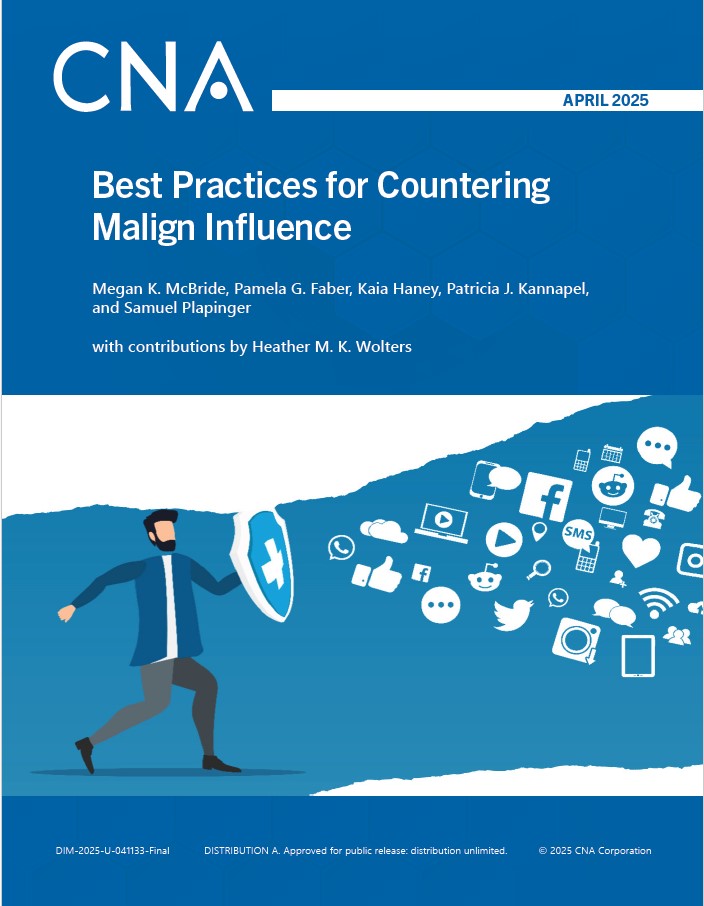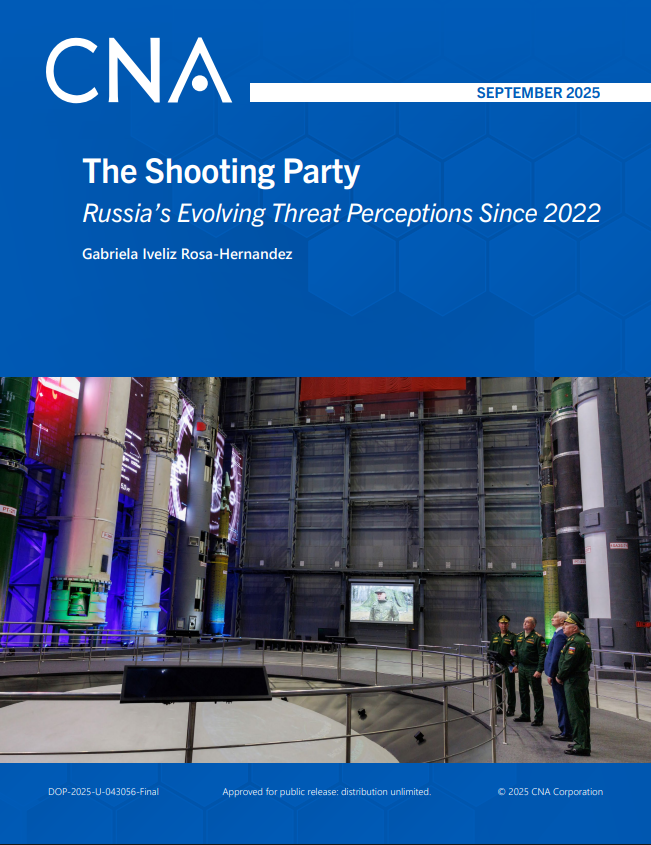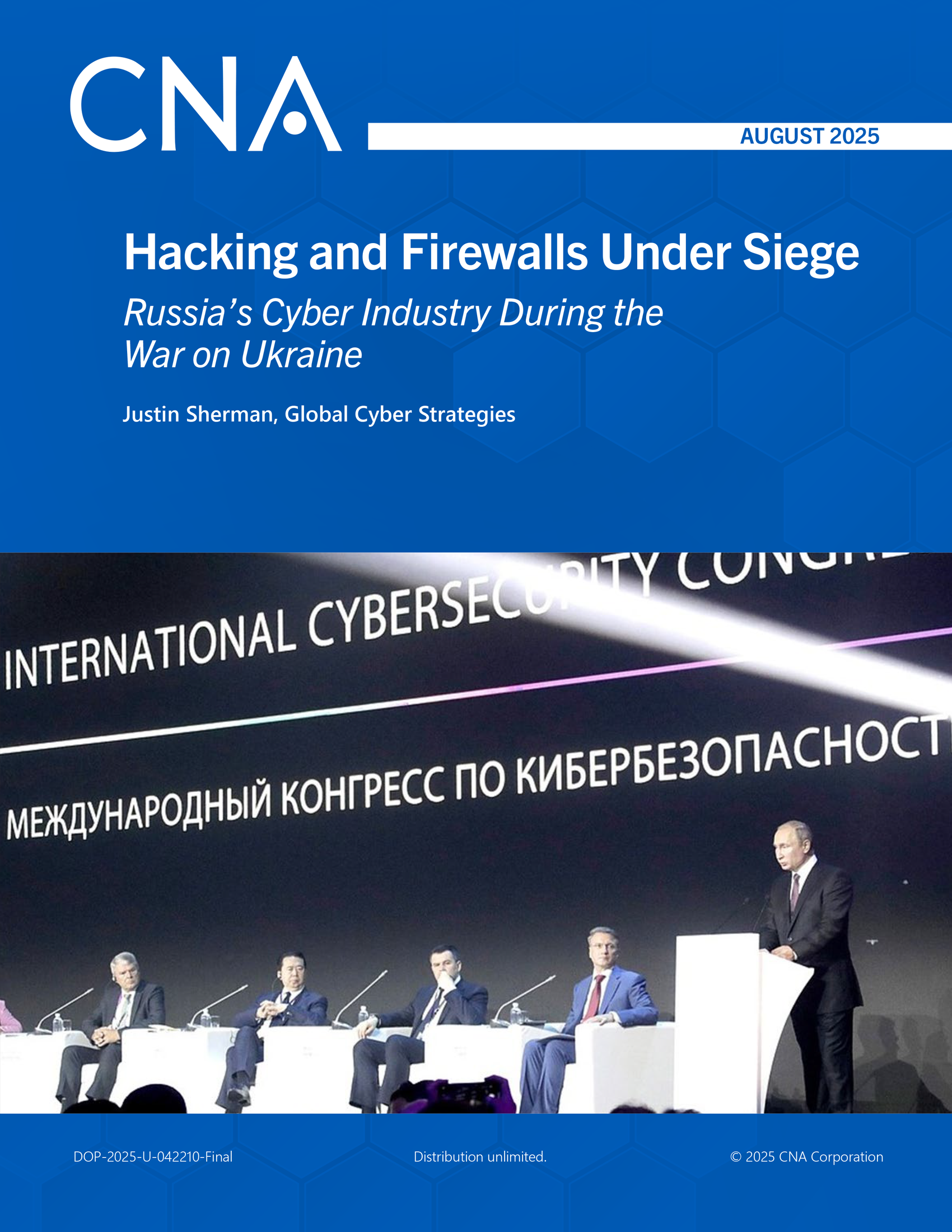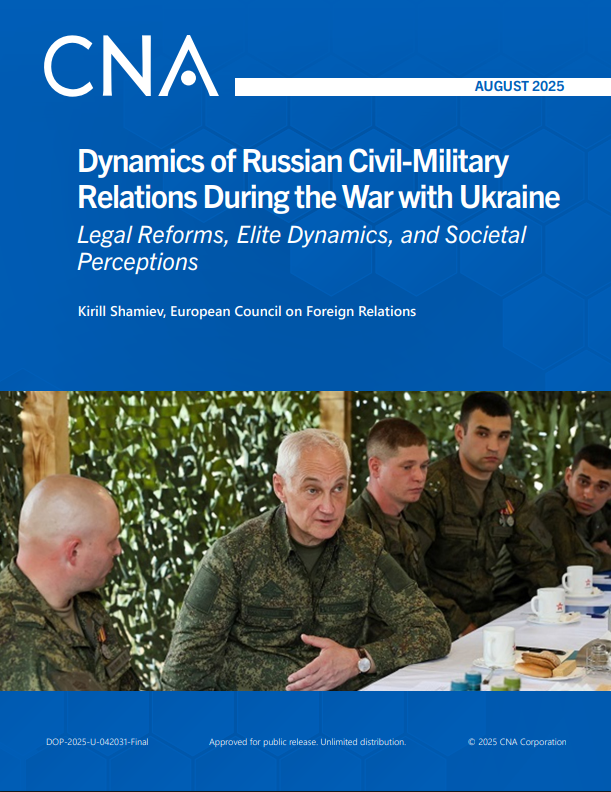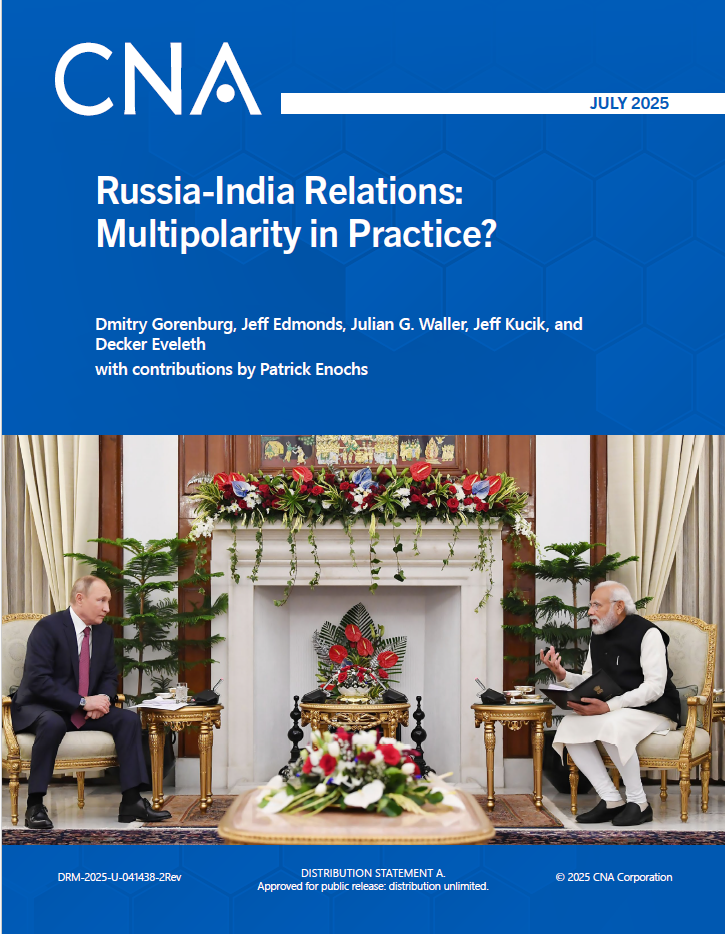Executive Summary
Foreign malign influence poses a significant threat. US adversaries are motivated to spread false narratives among a range of populations, including US servicemembers, those in the paths of extreme weather events, and disaster victims. Minimizing the impact of malign influence is a complex challenge that requires an evidence-informed response.
Malign narratives exploit normal psychological mechanisms that help people to function in their daily lives (for more, see our earlier work titled The Psychology of (Dis)information). As a result, it is not possible to fully erase this threat. However, a number of interventions can increase resilience to such content on a large scale:
- Inoculation. The practice of preparing individuals in advance in order to “inoculate” them against malign messages.
- Debunking. The use of a concise correction that demonstrates that the prior message or messaging campaign was inaccurate.
- Fact-checking. A journalistic practice designed to reject clearly false claims with empirical evidence from neutral or unimpeachable sources.
- Media literacy. A skill-building effort that improves an individual’s ability to critically assess a piece of content.
The goal of these interventions is not to change people’s strongly held positions or lightly held opinions. In fact, research suggests that these interventions do not change general political views, attitudes, or voting preferences, though they may change beliefs about the accuracy of false narratives.
A full review of the literature on these interventions—including a brief history and definition of each technique, a description of how they work, and a summary of the state of research on each technique—is available in the companion to this report: Evidence-Based Techniques for Countering Mis-/Dis-/Mal-Information: A Primer. The primary objective of this report is to provide practitioners with recommendations for how to use these interventions.
Download reportDISTRIBUTION A. Approved for public release: distribution unlimited.
Details
- Pages: 10
- Document Number: DIM-2025-U-041133-Final
- Publication Date: 4/30/2025
